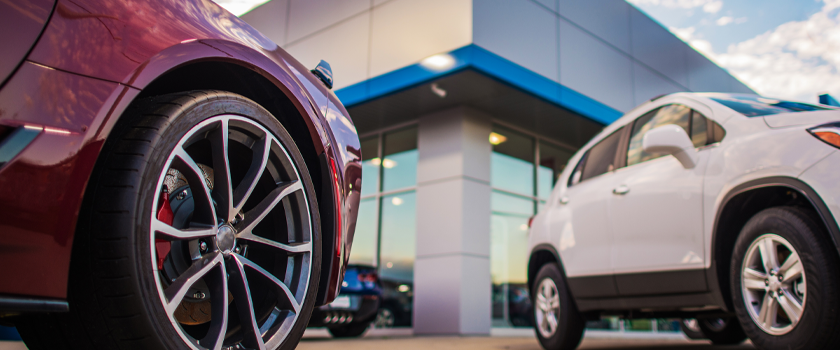The Market Problems Dealers Face Today— And Why Ignoring Them is Costly

Change isn't just on the horizon— it's already reshaping how non-franchise automotive dealerships do business. Each day brings new obstacles: fewer vehicles to buy, higher interest rates, and buyers who hesitate longer than ever before. Holding the line has never been tougher, and the real cost of doing nothing is clearer with every slow week and missed sale.
Dealership leaders are being tested by issues that affect every corner of the business. Here's a look at what's weighing on dealers right now— and why these problems matter.
Persistent Inventory Struggles
Finding vehicles has become a daily grind. Disruptions in supply chains extend restocking times, while heavy competition at auctions and online platforms drives up acquisition costs. In a recent interview, Chris Wyndham, Chief Revenue Officer, Dealer Car Search and Frazer Computing, notes, As new vehicle prices rise, more franchise dealers dip into the used market, increasing competition and wholesale auction prices. This creates significant inventory challenges and pricing pressures for non-franchise dealers.
When the right inventory can't be secured— or the balance on the lot isn't right— the risk isn't just slower sales but slipping margins and periods of stagnation.
Shifting Buyer Habits
Economic concerns and rising rates have changed how people shop. Buyers now look closely at older or high-mileage vehicles and examine every detail before making a commitment. Trust is harder to earn, sales processes take longer, and any uncertainty in your listings or lot experience can send them searching elsewhere.
Declining Margins
Purchasing and holding inventory costs more than ever and putting deals together is rarely easy or quick. Missed opportunities and internal missteps directly reduce profits. Dealers who fail to track these leaks find themselves under greater financial pressure, with less room for error.
Escalating Competition
Dealers are no longer just rivaling the lot across town. The struggle for attention happens online as much as in person. Small gaps in accuracy, speed, or communication can send buyers to competitors. When everyone is fighting for the same limited pool of customers and cars, any slip can mean lost business.
The Cost of Standing Still
The challenges aren't going to get easier. Yet many still rely on familiar routines and outdated tools to manage growing pressure. This approach isn't just old-fashioned; it's risky. Here's what's at stake for dealerships unable to adapt:
Digital Disconnect
Most buyers start their search online. Outdated or inaccurate listings, or a site that's hard to use, can cause you to be overlooked before any contact occurs. A poorly optimized digital presence not only frustrates potential buyers but also sends the message that your business may not prioritize customer experience. Ignoring this digital touchpoint greatly limits potential sales and leaves room for competitors.
Dealerships that don't prioritize digital retailing tools, such as online credit pre-approval or trade-in estimators, risk turning away buyers who demand convenience and transparency. As shoppers increasingly rely on mobile devices for car shopping, a slow or confusing website can drive them to competitors in seconds.
Eroded Buyer Confidence
Customer trust is delicate and can be easily shattered. Unclear pricing or unreliable information creates doubt from the outset. As Wyndham puts it, embrace what consumers are already hearing— [about] the cost of vehicles. Position yourself as the dealer offering fair, transparent, and stable pricing, despite market fluctuations.
Just one negative experience can erode trust, making it significantly more challenging to rebuild a dealership's reputation. Clear communication and honesty are key to maintaining lasting customer relationships.
Outdated Digital Tools
Outdated technology leaves buyers frustrated. Inaccurate inventory systems frustrate buyers when listed vehicles don't match what is available. Poor communication can leave potential customers feeling undervalued, while a lack of clarity in the car-buying journey creates confusion instead of confidence.
These challenges not only harm a dealership's reputation but also result in lost sales and eroded trust, making it harder to build lasting relationships with customers. Buyers expect swift, reliable digital experiences— falling short risks losing sales, trust, and repeat business.
What's Next for Dealers?
These challenges are here to stay. Economic uncertainty, evolving buyer expectations, and ongoing industry disruptions aren't going away— they're the new normal. Moving forward requires a clear understanding of where current strategies fall short and the courage to take action before the gap grows wider. Waiting for these pressures to ease isn't a viable option for most dealerships. The real question isn't, “Should I change?” but rather, “Can I afford to wait any longer to adapt?"